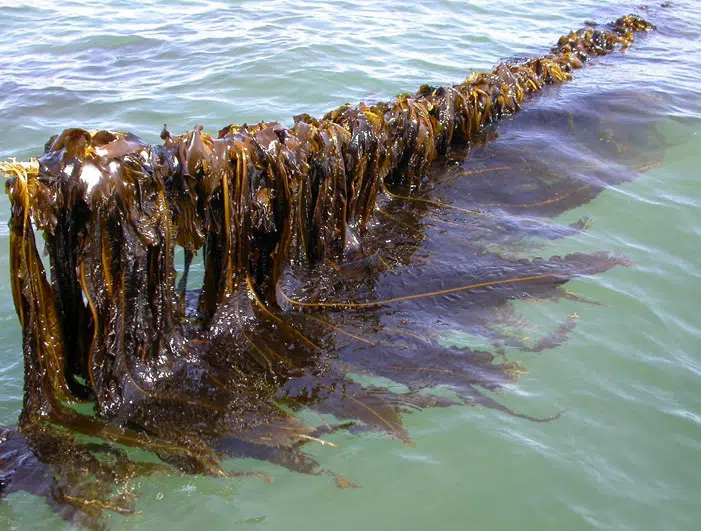A seaweed that can be found growing in the Bay of Fundy could be the key to unlocking a cure for Parkinson’s disease.
Researchers have discovered that a type of brown seaweed, commonly called winged kelp, can block the misfolding of a protein in the brain which is connected to the emergence of the central nervous system disorder.
“Prevention of this conversion may offer an effective way of avoiding the onset of [Parkinson’s disease], or delaying its progress,” a study on the topic published in the journal Neuroscience Letters reads.
Dr. Thierry Chopin is a marine biology professor at the Saint John campus of the University of New Brunswick. He’s also one of the study authors. He says the lightbulb went off thinking about extreme temperature variations this seaweed has to endure.
“These seaweed are able to withstand 50 degrees of temperature change,” says Dr. Chopin,
“We know that when you have a big change of temperature…that’s when protein has a problem to stay folded correctly. So the idea was we have organisms that are very well adapted to these cold, variable conditions, they must have molecules to protect themselves.”

(Dr. Chopin with samples of dried winged kelp. Photo credit: Constanza Chianale).
It will be “quite a few years” before this is commercially available but it’s a beginning, Dr. Chopin says.
Chopin, who is growing this type of seaweed on ropes in the Bay of Fundy to allow for a pure culture to work with, says there’s an enormous potential for seaweed aquaculture in the Bay of Fundy and that we should further diversify our aquaculture.
(Top right photo credit: Thierry Chopin).




